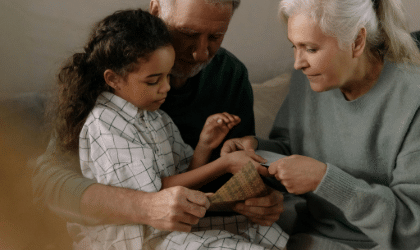After you’ve suffered a personal injury due to the negligence of someone else, it is time to take that first step and file your negligence claim. Although you may not immediately be thinking about filing a negligence claim after you get hurt, when you have an understanding of what’s in your control early on, it can make a big difference to the amount of damages you are able to gain.
Once you’ve taken action, you may be feeling a level of uncertainty about how much compensation you are going to receive. Your livelihood may depend on receiving these damages and can make a difference in your ability to put a roof over your family’s head and pay your medical bills.
The reality is the steps you take after your injury are incredibly important to receiving the compensation you deserve. They can take away or add to your credibility, which can directly influence the amount of damages you receive. In this article, we’re going to take you through some ways to maximize your compensation after you’ve filed a negligence claim.
What Are the Key Factors to Maximizing Compensation?
There are many key factors that contribute to the amount of compensation that you may receive as the result of your negligence claim. Understanding these factors from the outset may ensure that there are fewer obstacles in getting the right compensation as you proceed.
Hiring a Lawyer
Making sure you’ve hired legal representation that is highly experienced in the matter of negligence is critical to maximizing compensation. Negligence can be incredibly complex in certain circumstances, and it’s important to have someone on your side who understands these complicated details inside and out. Lawyers have an understanding of how to frame a negligence claim that can only be learned through many years of experience.
Lawyers have a comprehensive understanding of the factors that are at play in negligence claims like causation, duty of care, standard of care, remoteness, and more. When it comes to applying the law an intimate understanding of these variables will help your lawyer to think of creative legal solutions as defence lawyers try to pick your case apart.
When it comes to the nuances of the law it’s important to factor in case law as well, because this is the basis for a lot of legal reasoning and the eventual outcome in court. Lawyers have the research techniques backed up with a strong foundation of knowledge in common law to paint a relevant picture of your case as it applies to the law.
Among the other multitude of benefits of hiring a lawyer is that the injured party is freed up to rehabilitate which means less impact on their overall livelihood in the long term and less stress in the short term while satisfying the legal requirement to mitigate damages as highlighted later in this blog.
Preserving the Evidence
Evidence is crucial for building your negligence claim as it reinforces the credibility of your case and provides details that will inform the damages given.
Physical records and visiting a doctor can show the judge, jury, and opposing counsel that you were substantially injured as a result of your accident. This plays an especially important role in psychological injuries where the harm cannot be easily seen or in chronic injuries where the pain is persistent and grows over time. Using evidence to paint a full picture of the victim’s suffering and connecting it with the negligent act is an important step in getting the damages that will help an injured person to recover.
At the same time, creating a paper trail of the expenses incurred while rehabilitating your injury and retrofitting your life, will provide a tangible cost to the injury. Having to build features to your home like a ramp to live independently or medical costs outside of OHIP will add up. Actively documenting this paper trail will ensure that you are not paying for things that you didn’t have to before the negligence act.
Depending on the nature of your injury and the incident that caused it to occur, the type of evidence that should undoubtedly be preserved may include:
- Receipts for specialist appointments;
- Emails;
- Paperwork highlighting modifications to work;
- Letters of accommodation;
- Receipts from out of pocket expenses;
- Proof of prolonged care;
- Photos of the injury and/or of the accident scene;
- Medical records from all doctors and specialists seen;
- Witness statements; and,
- Documents showing income loss.
While there are nuances to this list to explore with your lawyer, this sort of evidence provides tangible proof of your injuries that go beyond the appearance of being physically injured and solidifies your claim. If you are pursuing a negligence claim and you have not saved documents that support your story, or you have used cash transactions with no receipt, you may be able to go back and request a letter from that individual showing proof of payment.
When it comes to proving your personal injury case, papering your evidence is crucial. Proving an injury can be incredibly difficult without physical evidence to back it up. Objective injuries such as fractures and breaks can be clearly seen on an X-ray or an MRI, making it incredibly difficult for opposing counsel to prove that the injury in question is not causing substantial pain. Having said this, chronic pain as the result of an injury is considered subjective. The injured party may be in excruciating pain every day of their life, but nothing significant shows up on an MRI. This is why documenting your treatment and the steps you’re taking to live with your pain every step of the way is incredibly crucial in your negligence case.
Beyond preserving the paper trail that illustrates the cost of recovery and making adjustments to get life back to normal, evidence in the form of photographs and videos is extremely helpful in proving your negligence claim. This not only applies to photographs and videos after said injury has occurred, but provides documentation that relates to your life, pre-injury. The comparison of this type of evidence can show the often substantial difference between the injured’s pre-accident and post-accident lifestyle.
For example, say that a party has sustained a personal injury as a result of a car accident. They may be suffering from chronic pain as a result and are also suffering from psychological injuries as a result of the accident. While they were once vibrant, energetic, and happy, their life post-injury has been anything but that. Unfortunately, neither one of these injuries are likely to be seen on an MRI or an x-ray. Therefore, documenting this clear change in lifestyle and personality by photos and videos pre and post-injury can paint a clear picture for opposing counsel, the judge, and/or a jury.
Make Efforts to Mitigate
Your duty as the injured to mitigate damages means you must do what is considered within your power to keep damages physically, legally, and financially within reason. For example, if you suffered a slip and fall and fractured your leg, reasonably, you would be expected to seek treatment from a hospital shortly after your injury, and receive regular checkups from your physician to ensure that your injury doesn’t worsen. This does not mean that you are required to seek out the world’s top specialists and fly to their location – it simply means that you need to do what is reasonable to ensure that you are taking care of yourself and that you’re not allowing your injuries to worsen by not obtaining care.
Mitigating damages does not only involve ensuring that you receive immediate and ongoing care for your injuries. As the injured party, you must adhere to the following in your day to day life:
- Exercise care and caution;
- Use safety precautions; and,
- Obey laws made to protect you.
In the case of a life-altering personal injury, you may not ever be able to return to your current form of employment. Although this may be incredibly frustrating and you may not wish to seek out an alternate form of employment, the amount you receive in regards to damages will be reduced if you have made little to no effort to find an alternative form of employment. Not only may damages be reduced if the injured party is not actively seeking alternative employment, but damages could also be reduced if they have turned down employment at a job that made similar or equal wages to their previous position.
The Importance of Maximizing Compensation in Your Negligence Claim
While the seemingly obvious answer to the question of why it’s important to maximize compensation in your negligence claim maybe, “to get more money”, the reasoning goes far beyond that. Some injuries are going to have a much greater impact on your life than others, and maximizing your compensation goes a long way to help you get back to the activities you were participating in before your injury, as well as supporting you financially while you recover.
For example, there are many instances where the same injury may affect someone more than others financially. A fractured foot to an athlete or a dancer may mean not being able to return to work ever again while someone who works at a desk may not be impacted as severely. Maximizing your negligence claim by documenting and providing proof of the impact your injury has had on your life can have a huge impact on your ability to provide for your family in the long run.
What does Gosai Law Do to Maximize Compensation?
When you choose Gosai Law to represent you, you are choosing many years of experience. The strategies outlined above are only some of the strategies that we have used when representing our clients for a variety of negligence claims.
Our priority is not only ensuring that you receive the damages that you’re entitled to but to make sure that you thoroughly understand the intricacies of your case and that you are informed at every step of the way.
We at Gosai Law represent clients from all different walks of life, including those who are new to Canada and have language barriers. We believe that it is incredibly important to be transparent when speaking to our clients about their claims and do our best to make them feel comfortable as we navigate this complex legal process with them. Whether that means hiring a translator, speaking to our clients regularly on the phone, and/or providing written updates, we will do whatever we can to make sure that you’re kept informed, and that you understand the complexities of your case.
How Can I Contact Gosai Law?
Gosai Law is happy to provide you with a free consultation in order to determine the best way to move your case forward. Our lawyers specialize in acts of negligence such as medical malpractice, critical injuries, motor vehicle accidents, and more, and will be with you every step of the way in pursuing your negligence claim.
While our physical office location is currently closed, we are continuing to be an advocate for your case remotely. Please reach out to us at (905) 595-2225 or contact info@gosailaw.com for more information.











